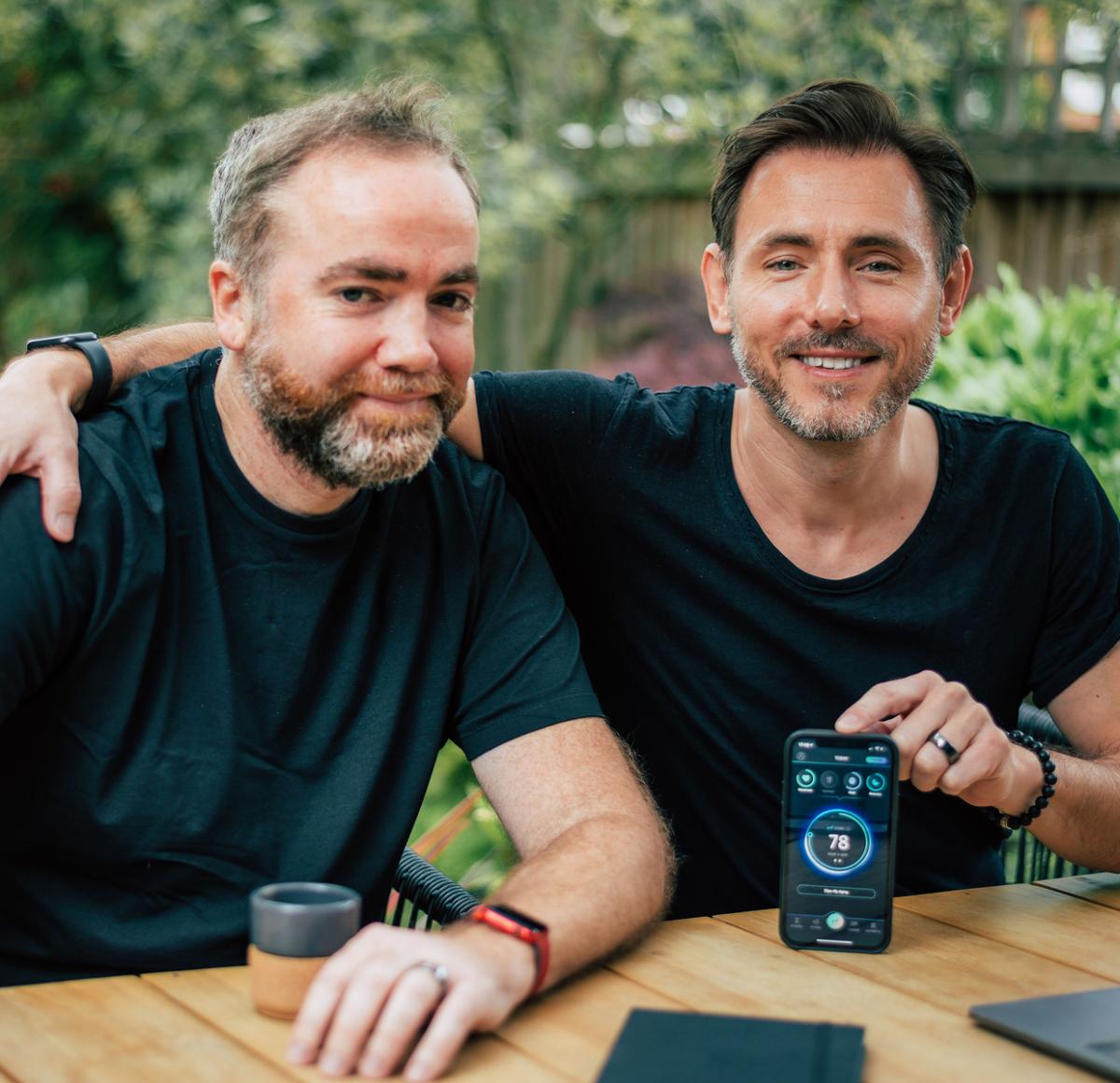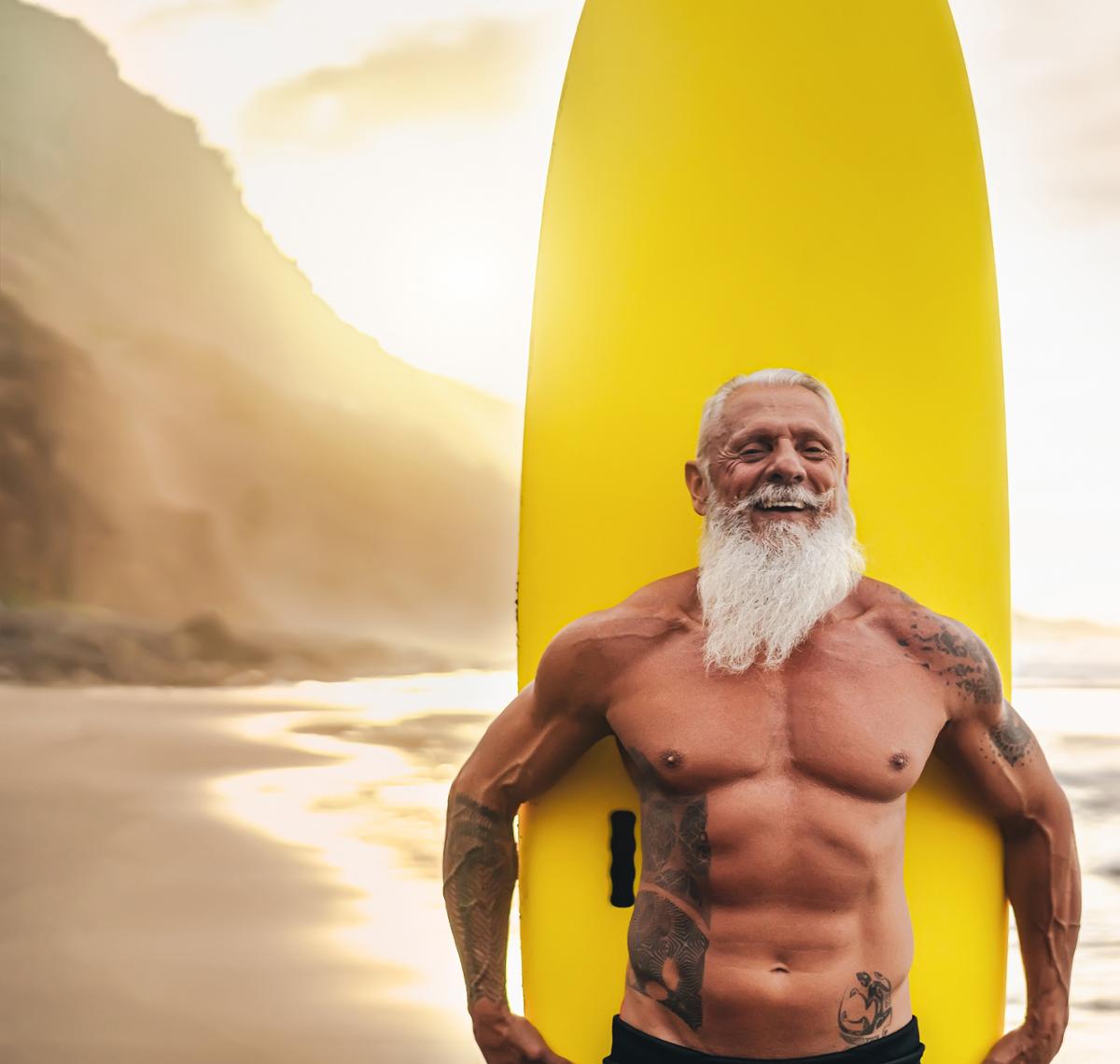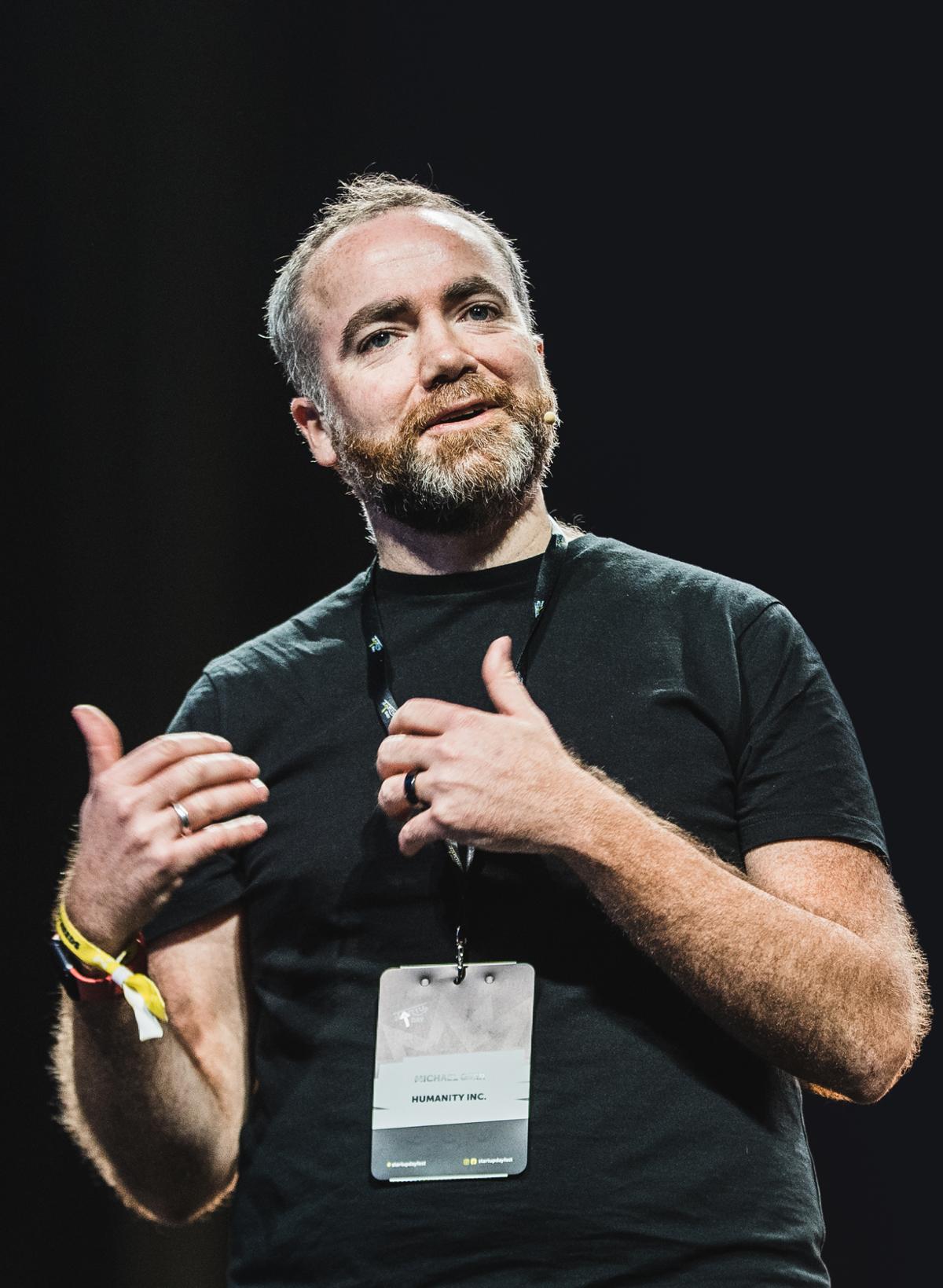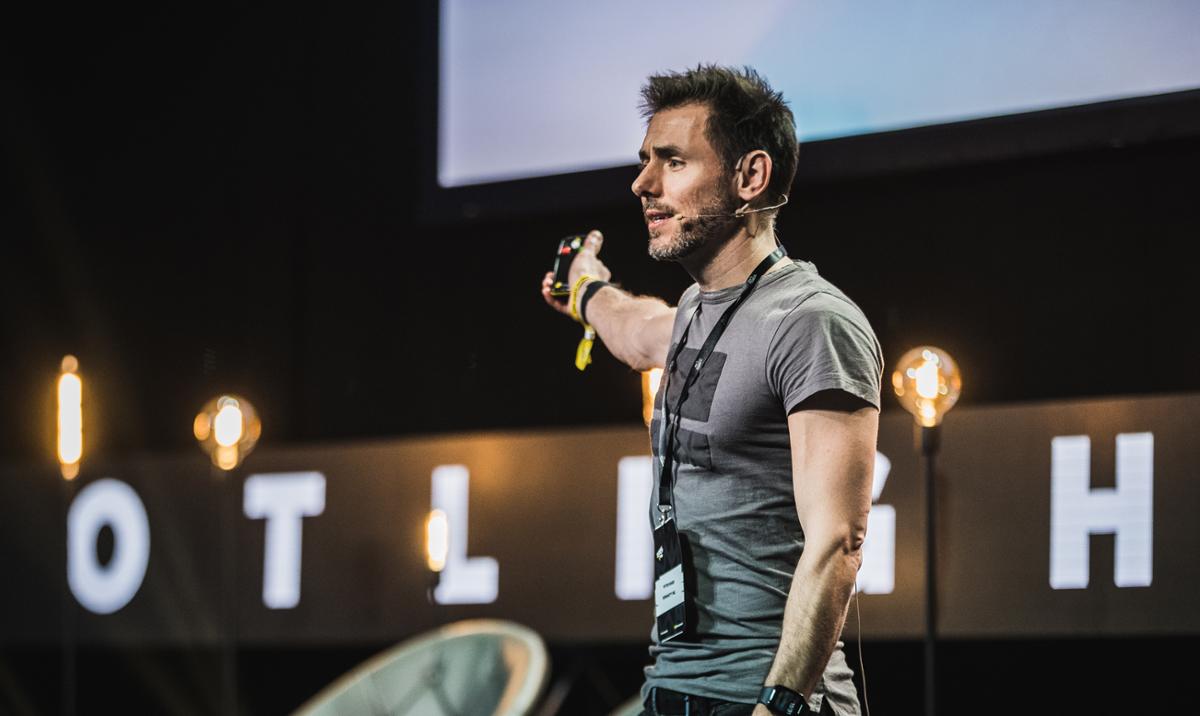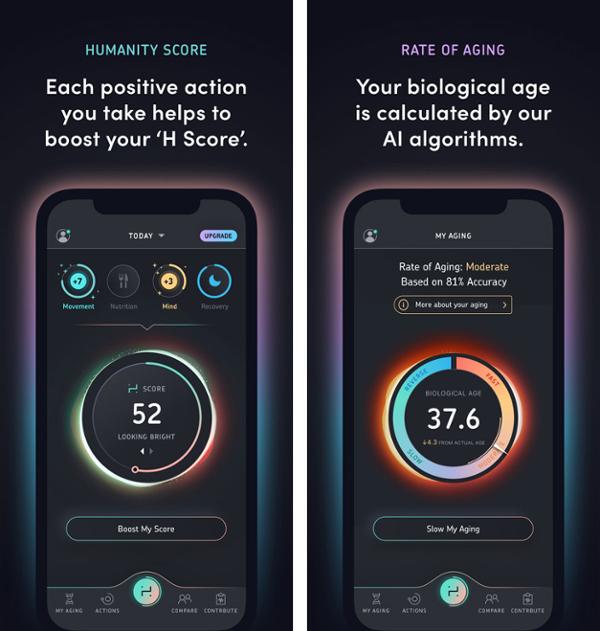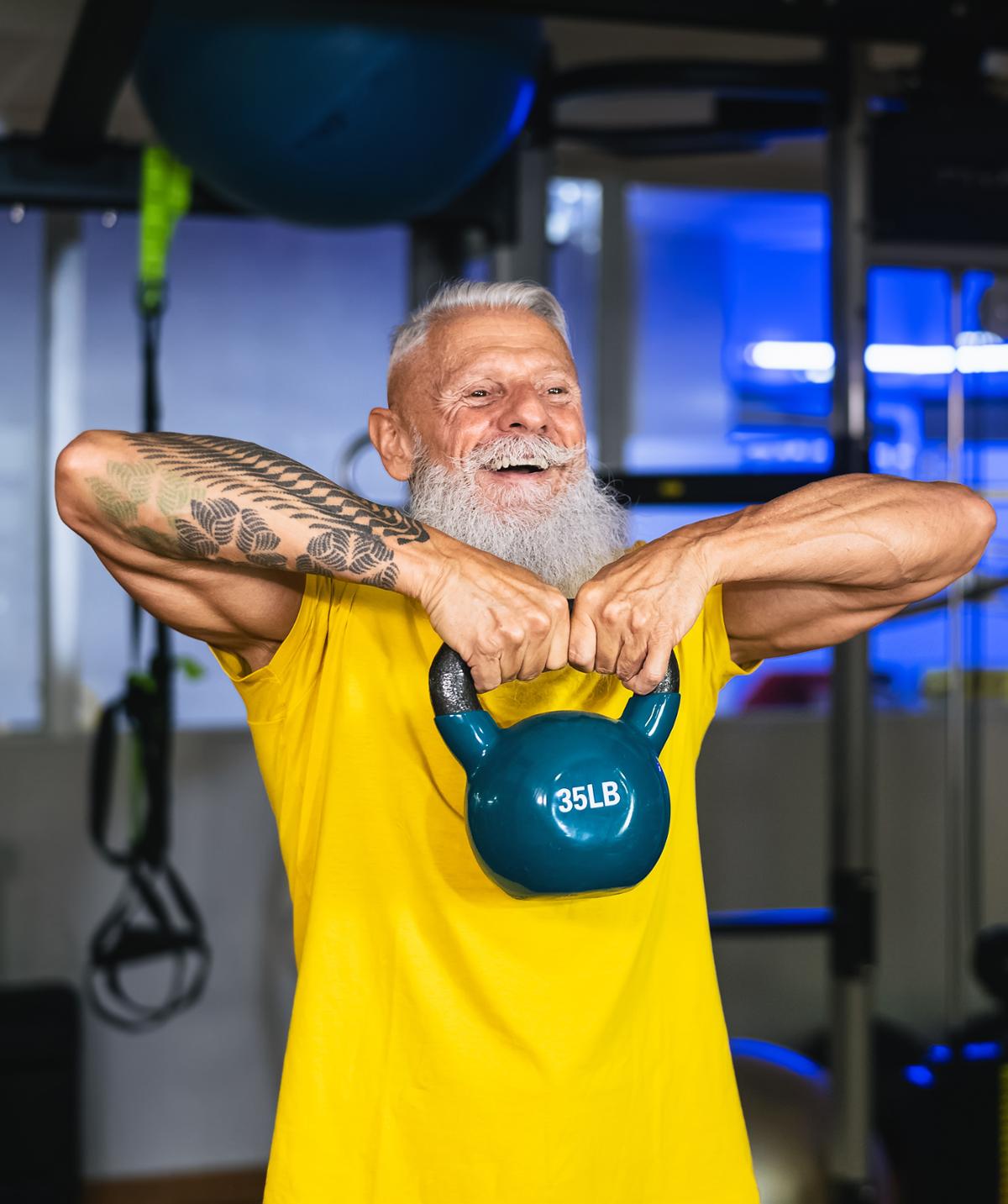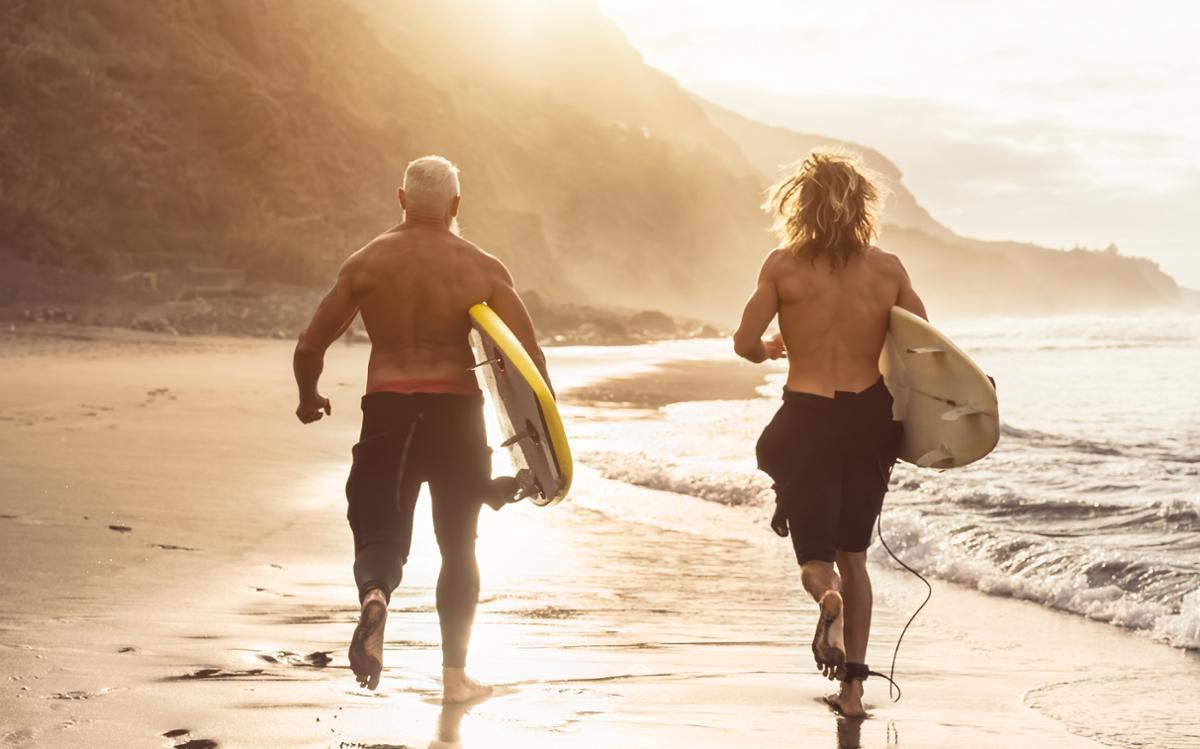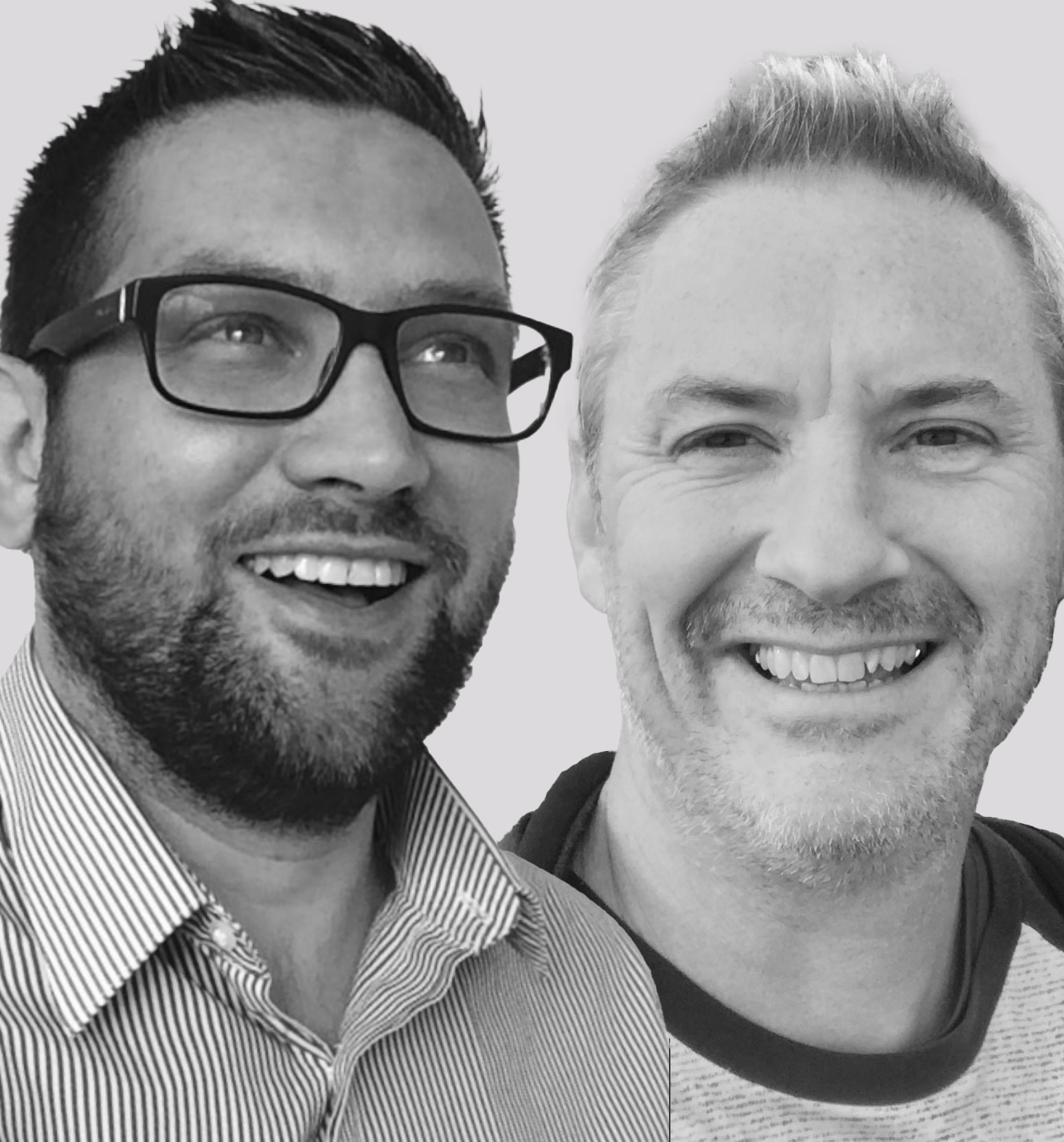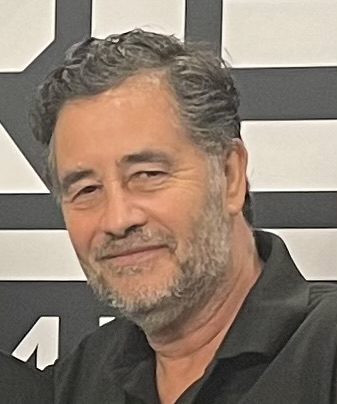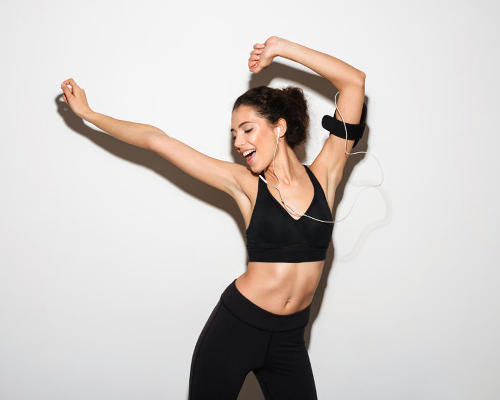Tell us about Humanity
Peter: Ageing is the leading cause of disease, and most people feel helpless to tackle it. We created Humanity as a solution to this, allowing users to monitor their Rate of Ageing, and even reverse it.
When users sign up, they will discover their initial Rate of Ageing based on the onboarding experience, which pulls activity data from Apple Health and asks a series of lifestyle questions based on a scientifically validated longitudinal study of over 230,000 people.
We then calculate Biological Age and continually update Rate of Ageing based on 90 days worth of data, which is taken from an Accelerometer Sensor in the iPhone and Heart Rate data from wearables.
Every positive action a user takes or tracks in the app helps boost their ‘H Score’ (Humanity Score) – the higher your ‘H Score’, the slower your rate of ageing.
The app offers hints and prompts to help users maintain a positive lifestyle, and our collective intelligence allows users to discover what’s working best for them by comparing this to others like them. The advice we offer is founded on the collective data of users who are successfully reducing their rate of ageing to provide a scientifically validated prediction every 24 hours, which increases in accuracy over time.
What are your career backgrounds?
Peter: Both Michael and I have collectively helped build consumer tech platforms that have reached over 1 billion users. Personally, my background started in travel. After exploring the world for a year, I launched WAYN (Where Are You Now?) – a travel social network – in my spare time whilst I was working at Accenture.
WAYN grew incredibly quickly, reaching over 25 million users, and was eventually sold to lastminute.com. I’ve also co-founded a tech-entrepreneur network called ICE, which aims to forge deep connections among founders, investors and tech-ecosystem leaders. Now, I’m focused full time on launching and growing Humanity in my role as CEO, helping people live longer, healthier lives.
Michael: Pete actually convinced me to join the WAYN team as COO, so we’ve been working together for many years, which means we have a really clear understanding of each other’s strengths. Prior to this, I was on the founding team of one of the largest dating sites in the world – Badoo – and helped the business reach 70m users.
After leaving, I decided I really wanted to do something impactful, and started exploring preventive health and cancer. Having both exited our previous companies, Pete and I decided to work together again, this time on something that we felt could change the world on a global scale, providing people with longer, healthier lives. We founded Humanity in April 2019 to do just that.
How did you come up with the idea?
Michael: Not only did we love working together previously, but we also had great successes in doing so. We actually hatched the idea for Humanity over a few pints of Guinness at a Web Summit in Dublin. After discussing how we’d both lost loved ones to chronic disease, we wanted to stop feeling helpless and start to empower millions of people around the world to protect themselves against age-related disease. Humanity was born from this ambition and we started working on the business full time, from 1st April 2019.
Tell us more about the science
Michael: The ageing models that measure your Rate of Ageing (or biological age acceleration) and Biological Age, are based on the most cutting-edge scientifically-validated models available.
We’ve partnered up with Gero.ai and incorporated their digital biomarker algorithm into our Composite Humanity model. The Gero model takes in the users’ accelerometer data from their smartphone (and heart rate data from any Apple Health connected wearables they have) and compares that to over 100,000 real people in the UK Biobank and the US CDC’s NHANES dataset to better predict the future health of our users.
There’s a growing body of research that has established the fact that people’s bodies age differently, as a direct result of their lifestyle and environmental factors, and that it can be slowed or reversed.
Are you using any exciting tech?
Michael: We’re building the world’s first health graph, connecting what actions are working for people when it comes to slowing their aging – based on what’s working for people like them.
On the data science side, we’ve developed a machine learning, engineering framework with 55 AI engineers, in partnership with Omdena.
This is being further developed by our in-house machine learning team and chief science officer, using causal inference and propensity scoring, to better understand the optimal health path for each individual, based on what’s working for other people like them, to slow their aging.
Do you think putting the focus on ageing will change the way people feel about tracking their health?
Peter: Not only is ageing the leading cause of disease, but until now, there has never been a good way to measure it, and most people feel helpless to prevent it. Despite this, it is one of the most holistic markers of overall health. By understanding what actions help to slow, or reverse aging, we can all reduce our risk of disease and death, and ultimately live longer, healthier lives.
Most apps track very specific activity, such as calories burned or steps taken, which give a micro-level perspective of a person’s health on any specific day. Humanity aims to show the whole picture and how all these positive steps contribute to a fuller understanding of health and how it’s related to ageing.
At scale, this will reduce the suffering of millions of people and contribute trillions of dollars of impact on the global economy, freeing up healthcare systems to focus more on prevention than sick care.
How much funding have you raised?
Michael: We’re incredibly fortunate to have received US$2.5m seed funding in an oversubscribed round back in March 2020 and to have the support of some incredible investors, from businesses we truly admire and respect in the health-tech industry. These include the co-founders of Calm, MyFitnessPal, Soundcloud and Esther Dyson, as well as leading funds in the US and Europe.
What feedback have you had from the early adopters?
Peter: Overall, the feedback has been unanimously positive.
We believe Humanity is getting such great feedback because it gives a full picture of health in a really simple way, along with clear advice and functionality that help people to make small changes that will ultimately reduce their rate of ageing.
We think this positive response is in part because people had become so used to analysing their health on a micro level, it becomes a little fragmented and granular. For others, that level of detail had become intimidating and Humanity fixes those issues.
How long do you expect users to stick with the app?
Peter: The daily Humanity score gives users a real-time understanding of how well their day is progressing, with personalised real-time guidance on what actions are most likely to be effective, based on the other actions already done that day. Users can then compare progress with others on a weekly and monthly basis.
They’ll soon be able to do this with their friends and family too, so they can keep each other accountable and add an element of healthy competition.
We’ve worked hard to distill the complexity of ageing and what actions people can take to slow it down, into a highly engaging and simple interface that encourages people to take action and improve their health. Based on the feedback thus far, it seems we’re on the right track!
Does the app give more accurate feedback if the user has a wearable?
Michael: The app monitors four key areas attributed to health: movement, mind, nutrition and recovery. Most of this data is pulled from Apple Health and is based on a smartphone or wearable, so having a compatible wearable will give a more accurate reading. However, data can be inputted manually by the user – such as daily mood, workouts (if not tracked) or sleep (if not tracked), and more additions will come in the future.
Activity is analysed every 24 hours and the Rate of Ageing and Biological Age predictions are based on the last 90 days of data. The beauty of this is that the more data that is collected, the more accurate it becomes, which in turn encourages more positive changes, meaning users can actually see the results of their hard work, as their age starts to reverse.
You also offer genetic testing. Can you tell us about this?
We’re testing the incorporating of other ageing models, based on blood and genetic data, having partnered with Chronomics, Eurofins and Illumina, to help analyse our DNA methylation markers, and we have developed our own clinical blood biomarker model, based on well established studies of which blood markers, in combination, can predict biological ageing.
What’s the payment structure?
Peter: It was really important to us that the app remains completely free, so anyone can effectively monitor their rate of ageing. We plan to offer additional in-app subscriptions and once we launch that will make the data even more accurate and enable a more holistic view of health.
Why is now the perfect time to launch?
Peter: We’ve all lost a part of our life to the pandemic. Many of us have lost loved ones as well and it’s forced us to look at our health and mortality in a totally new light. It’s also brought to light how fragile the world’s healthcare systems can be, and there are now backlogs of people waiting for care for totally preventable diseases.
There’s clearly a need for new products that give people the whole picture of their health, and empower them to live a more resilient life. Although this has been a dark time, we hope it has a positive impact as people harness everything available to them to better inform themselves about their own health, and the role that ageing plays in this. We at Humanity plan to have a major role in this evolving world and we can’t wait for people to experience the app.
How do you predict health technology will impact ageing in the future?
Michael: There’s been a huge growth in digital health, AI, monitoring, wearables, quantified self and biohacking, as well as an increased interest in controlling one’s own health and maximising healthspan, but most of these are really only used by a niche group of engaged users, and they each monitor a specific health factor. Right now, there really is no good way of monitoring ageing.
We envisage Humanity playing a key role in making this way of monitoring health much more accessible to the mainstream consumer. Things such as blood marker tests and genotyping are becoming increasingly affordable to the masses and have been cited in clinical trials and scientific papers as the most advanced way to measure ageing.
What’s more, many of these processes are becoming less invasive. Over the coming years, we see health tech moving away from a niche audience of biohackers and into the mainstream, with everyone able to monitor the impact of their lifestyle on their biological age at a micro and macro level.
What are your goals for the app?
Peter: We plan to be the leading app for slowing your aging, in the same way that Calm is the leading app for meditation.
The bigger picture for us is using tech to enable everyone to live longer and healthier lives than previous generations.








